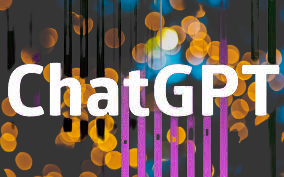Physics is the study of matter, energy, and the fundamental forces that govern the universe. It is a complex and challenging field that requires a deep understanding of mathematics, scientific principles, and experimental techniques. In recent years, artificial intelligence (AI) has emerged as a powerful tool for advancing research in physics, and ChatGPT is one of the most advanced AI models that can help in this regard. ChatGPT is a large language model that has been trained on a vast corpus of text data. This allows it to generate coherent and intelligent responses to a wide range of questions and prompts.
While ChatGPT is not specifically designed for physics research, it can be a valuable resource for physicists in several ways. One of the most significant benefits of using ChatGPT in physics research is its ability to process and analyze large volumes of data quickly and accurately. This can be especially useful for physicists who work with complex data sets, such as those from particle accelerators, astrophysical observations, or numerical simulations. ChatGPT can quickly process this data and generate insights that might be difficult or impossible for humans to discover. Another way ChatGPT can assist in physics research is by helping to formulate hypotheses and research questions. ChatGPT can analyze existing data, identify patterns and relationships, and suggest new avenues for exploration. This can save physicists a great deal of time and effort and can help them to focus their research on the most promising areas. ChatGPT can also be useful for communicating scientific concepts and findings to a broader audience.
Many people find physics to be a challenging and intimidating subject, and scientific papers can be difficult to understand for non-experts. ChatGPT can generate plain language summaries of research findings, making them more accessible to the general public. This can help to promote public engagement with science and inspire the next generation of physicists. Finally, ChatGPT can be used to help physicists collaborate with each other more effectively. Physicists often work in teams that are spread out across different locations and time zones. ChatGPT can assist in this by facilitating communication and collaboration between team members. It can also help to keep track of deadlines, organize data, and share research findings. Furthermore, ChatGPT can be a valuable tool for physicists looking to advance their research. Its ability to process and analyze large volumes of data quickly, formulate hypotheses and research questions, communicate scientific concepts to a broader audience, and facilitate collaboration makes it a versatile and powerful tool. As the field of physics continues to evolve, ChatGPT will likely become an increasingly essential resource for physicists looking to stay at the cutting edge of their field.

Comments
Post a Comment